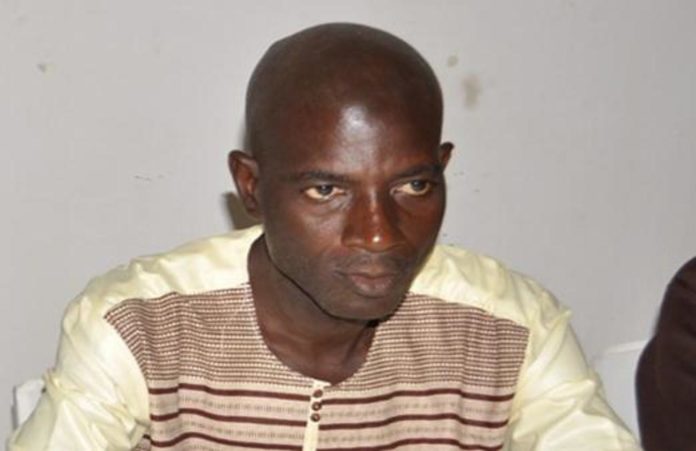By Yankuba Jallow
The Gambia Supreme Court on Tuesday, 7th December 2021 dismissed a freedom of expression suit brought by Bai Emil Touray seeking declaration that section 60 of the Criminal Code which criminalizes free speech, is unconstitutional.
Bai Emil Touray was the 1st Plaintiff, Open Media Centre was the 2nd Plaintiff in the suit whereas the Attorney General was the only defendant in the case.
Section 60 of the Criminal Code (Defamation of Foreign Prince) provides “Any person who, without such justification or excuse as would be sufficient in the case of the defamation of a private person, publishes anything intended to be read, or any sign or visible representation, tending to degrade, revile or expose to hatred or contempt any foreign prince, potentate, ambassador, or other foreign dignitary with intent to disturb peace and friendship between the United Kingdom or The Gambia and the country to which such prince, potentate, ambassador or dignitary belongs, is guilty of a misdemeanour.”
The case was filed on the 3rd March 2021. Touray, in his statement of case said this provision of the penal code dates back to colonial days adding The Gambia, at the time, was a colony. He contended that the law is not necessary in a democratic society since it criminalizes speech. Touray relied on sections 17, 207 and 209 of the Constitution – all guaranteeing the right and freedom of the press and media.
Section 207 deals with the rights and responsibilities of the press and media while section 209 imposes limitations to the rights and freedoms of the press and media.
The Plaintiffs wanted the apex court to make declaration that section 60 of the Criminal Code which criminalises free speech as it regards any foreign prince, potentate, ambassador, other foreign dignitaries as unconstitutional.
It was the position of the Plaintiffs [Bai Emil Touray and Open Media Centre] that this provision of the Criminal Code was made in excess of legislative powers.
The Plaintiffs contended that section 60 of the Criminal Code does not fall within the reasonable restrictions provided under section 25 subsection 4 of the Constitution.
The freedom of expression advocates in their writ of summons argued that this provision of the penal code is not in line with reasonable restrictions envisaged in the Constitution necessary in a democratic society.
The activists argued that its maintenance in the laws gives the State excessive powers.
The Attorney General admitted that it is a colonial legislation, but argued that it was necessary in a democratic society. Counsel Binga D. for the Attorney General submitted that the restrictions under section 60 of the Criminal Code are reasonable, adding it is meant for the maintenance of peaceful co-existence between The Gambia and other countries, as well as for the protection of foreign dignitaries here in the Gambia.
Justice Maimuna M. Sey delivered the lead judgement which was supported by the other judges of the Supreme Court.
Justice Sey said the rights and freedoms of the press and media are guaranteed in the Constitution. She cited section 25 of the Constitution which guarantees freedom of speech; that “Every person shall have the right to freedom of speech and expression, which shall include freedom of the press and other media.”
Justice Sey said the rights and freedoms of the press and media under section 207 are not absolute.
Section 207 provides “(1) The freedom and independence of the press and other information media are hereby guaranteed. (2) An Act of the National assembly may make provisions for the establishment and operation of the press and other information media. (3) The press and other information media shall at all times, be free to uphold the principles, provisions and objectives of this Constitution, and the responsibility and accountability of the Government to the people of The Gambia’.
The Judge said section 209 provides for the basis for the restrictions.
Section 209 provides “The provisions of sections 207 and 208 are subject to freedom laws which are reasonably required in a democratic society in the interest of national security, public order, public morality and for the purpose of protecting the reputations, rights and freedoms of others.”
She cited the Supreme Court case of Ousainou Darboe and others versus the Attorney General where Justice Hassan B. Jallow came up with a three test criteria to determine whether a provision of a law is reasonable and necessary in a democratic society. They were whether the provision is reasonable, whether it is necessary and whether it falls within the criteria set out under section 25.
Justice Sey said the restrictions as it regard the right and freedom of press and media should be in line with the intent and purpose as provided under section 209 of the Constitution.
She said the court is with the considered view that section 60 of the Criminal Code is constitutional. She held that it is to maintain the relationship between the Gambia and United kingdom.
She dismissed all the prayers sought by the press freedom activist in its entirety.
















